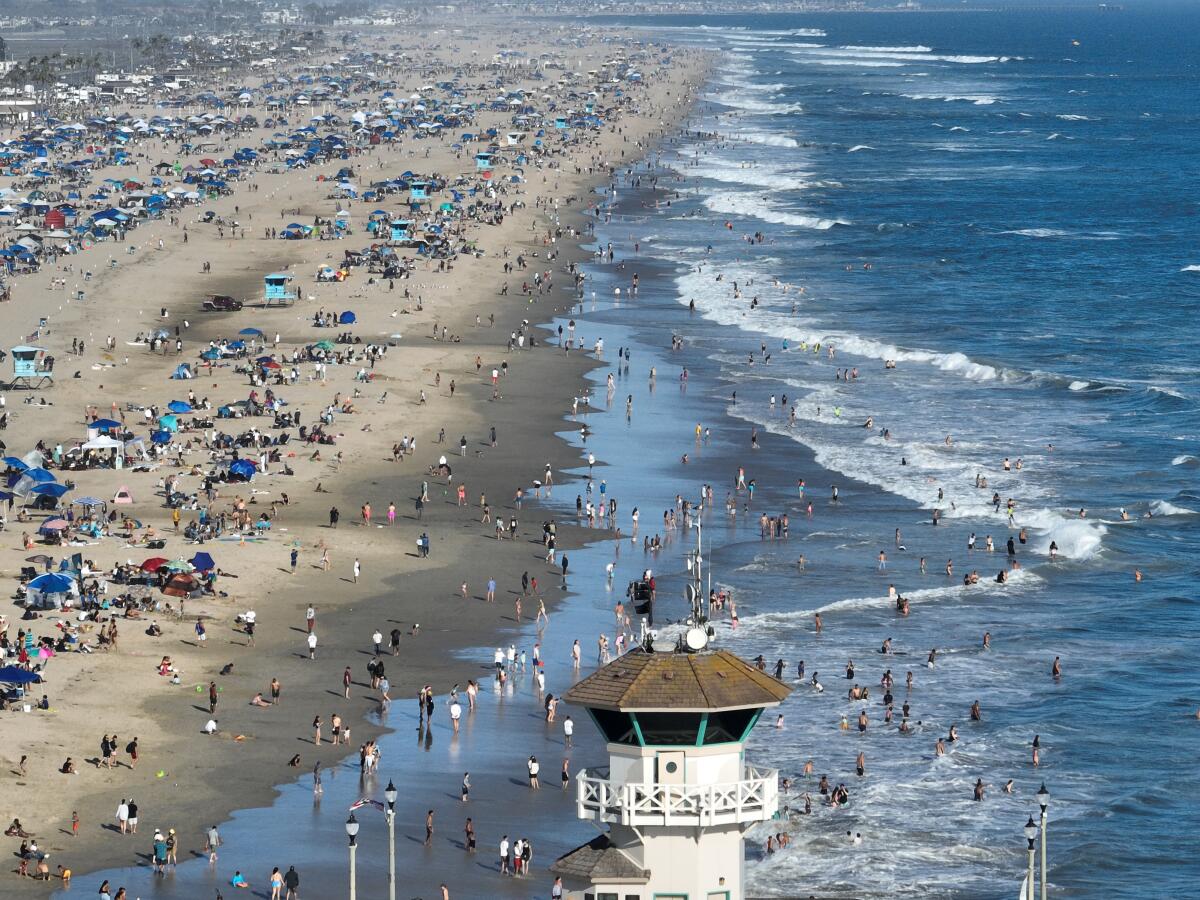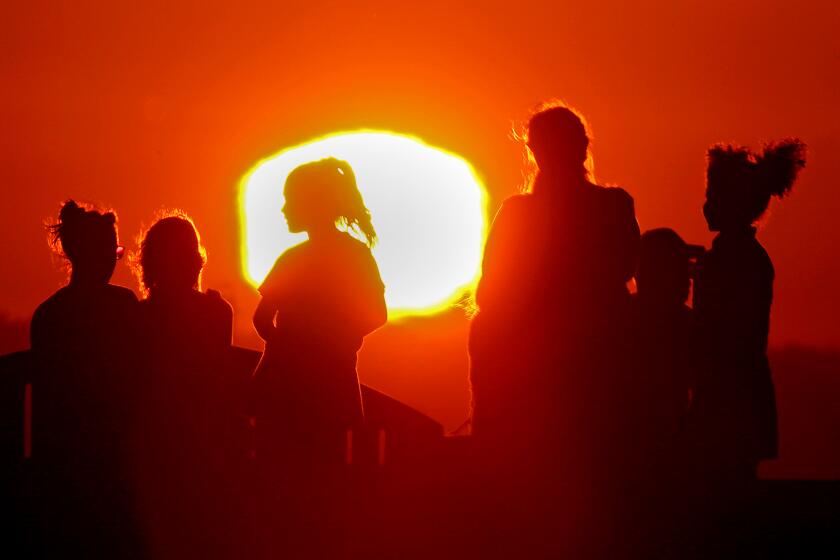Here we go again: ‘Intense heat wave’ expected next week across Southern California

- Share via
Another stifling heat wave is expected to hit Southern California next week, with forecasters warning it will likely be hotter and last longer than the Fourth of July weekend spike in temperatures.
Warming is expected to begin Monday as a strong high pressure system builds over the southwest U.S., with triple-digit temperatures expected across the region by Wednesday, according to David Sweet, a National Weather Service meteorologist in Oxnard.
“It’s going to be a pretty intense heat wave,” Sweet said. “This one will be a more considerable heat wave than the last one. ... Very warm temperatures coming up by the middle of next week, especially for the valleys, mountains and deserts.”
He said temperatures are expected to soar “well above 100” in the Antelope Valley by midweek, possibly hitting 115, with surrounding valleys and foothills also likely to hit in the triple digits. Interior coastal plains are forecast to reach into the 90s, and downtown L.A. will peak in the high 80s.
But through Sunday — before this next heat wave hits — forecasts show slightly below-average highs for Southern California, with downtown L.A. hitting the mid-70s to low 80s, and the surrounding valleys reaching into the high 80s.
Once the scorching temperatures hit, it’s unclear when the Southland could see relief.
“That heat may build additionally late in the week into next weekend, making for a prolonged period of hot to very hot weather away from the coast,” according to Thursday’s National Weather Service’s forecast discussion. “This extended period of heat could lead to increased incidents of heat-related illnesses and stress to the power grid.”
Sweet said even the coasts will feel significant warming by midweek, with above-average highs expected, into the 80s.
California’s first heat wave of the year could last into next week. Here are some tips on how to stay safe and cool during hot weather.
“With this very strong high pressure system we don’t expect much of a marine layer ... there will be much more potential for heat,” Sweet said. “It looks like a pretty big section of the country in the Southwest is going to be affected by this.”
The Central Valley is also bracing for highs into the 100s by Tuesday and Wednesday, as is the Las Vegas area, parts of northwest Arizona and into San Diego County.
“It looks like this will last for quite a while, so everyone needs to check their air conditioning and remember all of the safety rules regarding heat conditions: Do not spend too much time outdoors in the afternoon sun, drink plenty of liquids,” Sweet said. “Heat illness can sneak up on you when you’re not watching.”
The National Weather Service is warning of a moderate heat risk next week from the northern Central Valley down to inland San Diego County.
The high temperatures will also bring an increased fire risk, as the valleys and foothills heat up.
U.S. scientists calculate that Earth had its unofficial hottest day in human record keeping Monday and then suffered an even hotter day Tuesday.
The last week or so of high temperatures signals the start of a hot summer for the entire state.
Slightly above-average temperatures are predicted for most of California through July, August and September, according to the National Climate Prediction Center’s three-month outlook.
And while the Golden State has thus far seen a cooler-than-average start to the year, it’s been an outlier among much of the world, as repeated heat waves have brought dangerous temperatures to regions from the southeastern U.S. to China and parts of Europe.
On Tuesday, scientists believe the Earth surpassed the record for its hottest day, only beating out the day prior — adding to growing concerns about climate change’s ballooning effects.
More to Read
Sign up for Essential California
The most important California stories and recommendations in your inbox every morning.
You may occasionally receive promotional content from the Los Angeles Times.













